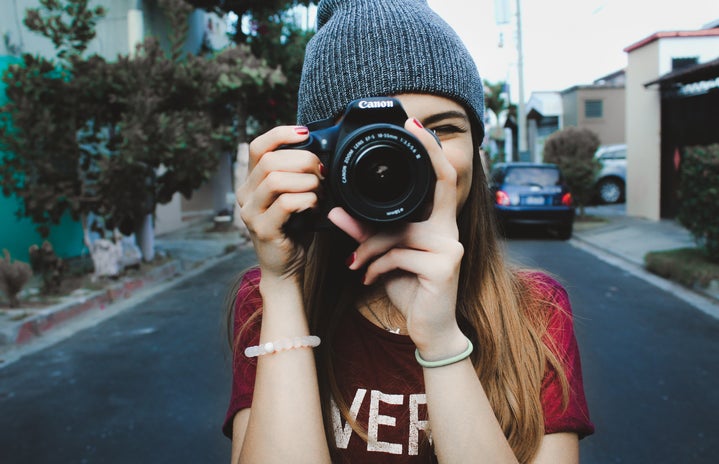There are several variations of the definition of a “social media influencer.” Urban Dictionary defines this term as “a single person with the capacity and power to ignite a movement within their circles of influence and create a community of creators,” while Pixlee defines them as having “an established credibility in a specific industry, with access to a large audience and can persuade others by virtue of their authenticity or reach.” Regardless of the differences in definitions, it’s safe to say that a large part of a social media influencer’s job is to inspire their audience to lead the same kind of lifestyle as them; this may involve doing the same things on vacation, using the same beauty products, dressing in the same way, or maintaining the same ideology surrounding various social issues.
It’s ironic how we call these personalities “influencers” when the lifestyles these individuals portray online are far from influential. Anytime I scroll through Instagram or look for YouTube videos to watch instead of doing schoolwork, my feed is full of young people that our culture has identified as “social media influencers”, yet interestingly, these people are living extravagant lifestyles that aren’t accessible to the vast majority of their audiences. The regular luxury vacations many social media influencers attend, the constant showcasing of expensive clothing and cosmetics, and the advertising of a seemingly perfect lifestyle are not aspects of a realistically-attainable lifestyle for many of their followers.
In addition to the image that influencers project to their audiences, the ideologies they share can also be problematic. On many social media platforms, influencers often share an abundance of thoughts and opinions on certain issues that they’re not the most informed about. One instance that comes to mind is Trisha Paytas’ (now deleted) YouTube video, “Why You Should Vote for Donald Trump”. While Trisha tried to defend Trump’s controversial presidential campaign and dismiss his behaviour as him being a “character”, her arguments were ill-informed. There are many other instances of social media influencers sharing substandard information on topics such as mental health, sexual health, and sexuality. For instance, Joey Kidney’s Youtube video series, “Let’s Get Uncomfortable”, is meant to provide solid advice on these issues, but instead promotes the idea of “go to your parents if you need help”, rather than providing valuable, concrete advice.
In an online community full of influencers bragging about their own lavish lifestyles, it’s important to be able to recognize the unfortunately small number of influencers whose influence is genuinely positive. Here are a few of my favourites:
- Bestdressed: a film student at UCLA who posts videos on topics involving putting an outfit together and thrift shopping, and has candid conversations about sex, dating on Tinder, masturbation, menstruation– you name it.
-
Jenna Marbles & Julien Solomita: these guys have their own respective Youtube channels, a Twitch stream where they play video games (most often PubG), and even a podcast where they share stories about their three dogs, college experience, and favourite childhood memories
-
The Try Guys: a group of four former Buzzfeed producers who complete various activities to bring awareness to certain social issues or simply showcase a group of friends enjoying a fun activity. Here are some great ones to check out:
-
“Should the Try Guys Get Plastic Surgery?”: this video ultimately promotes embracing your imperfections
-
“Try Guys DUI Series”: this video shows the dangers of driving while texting, driving while severely sleep deprived, and driving under the influence of alcohol or marijuana
-
“The Try Guys Bake a Pie without a Recipe”: while this one does not bring awareness to a certain social issue, this video is just entertaining!
-


